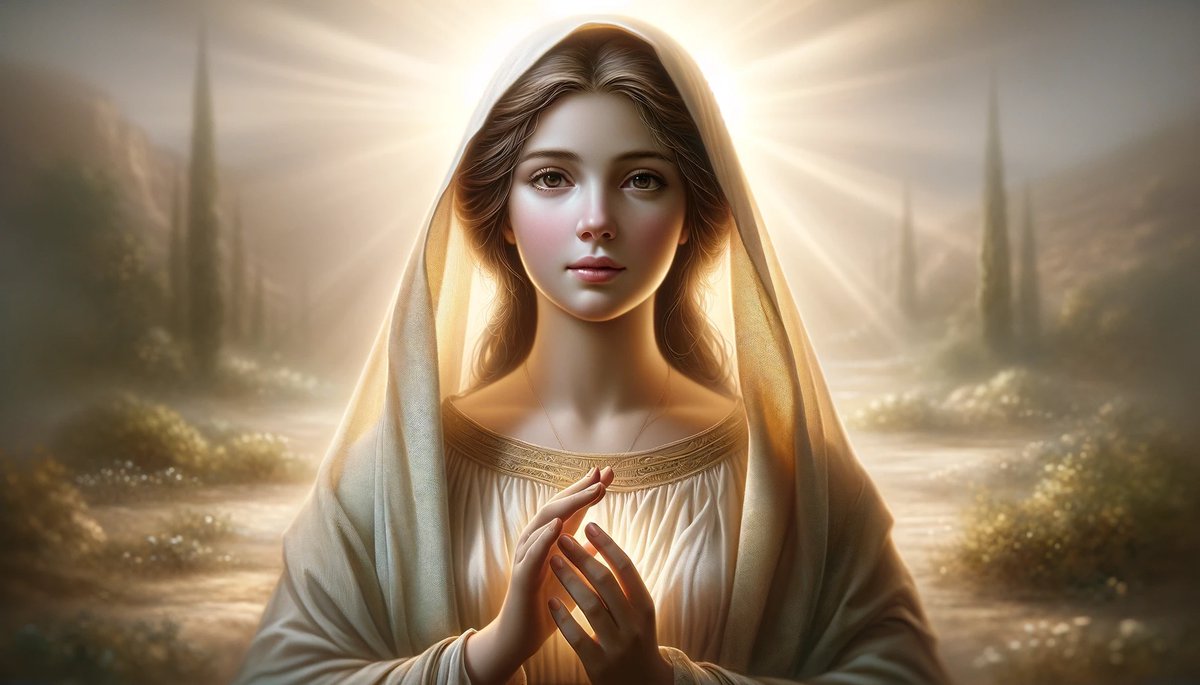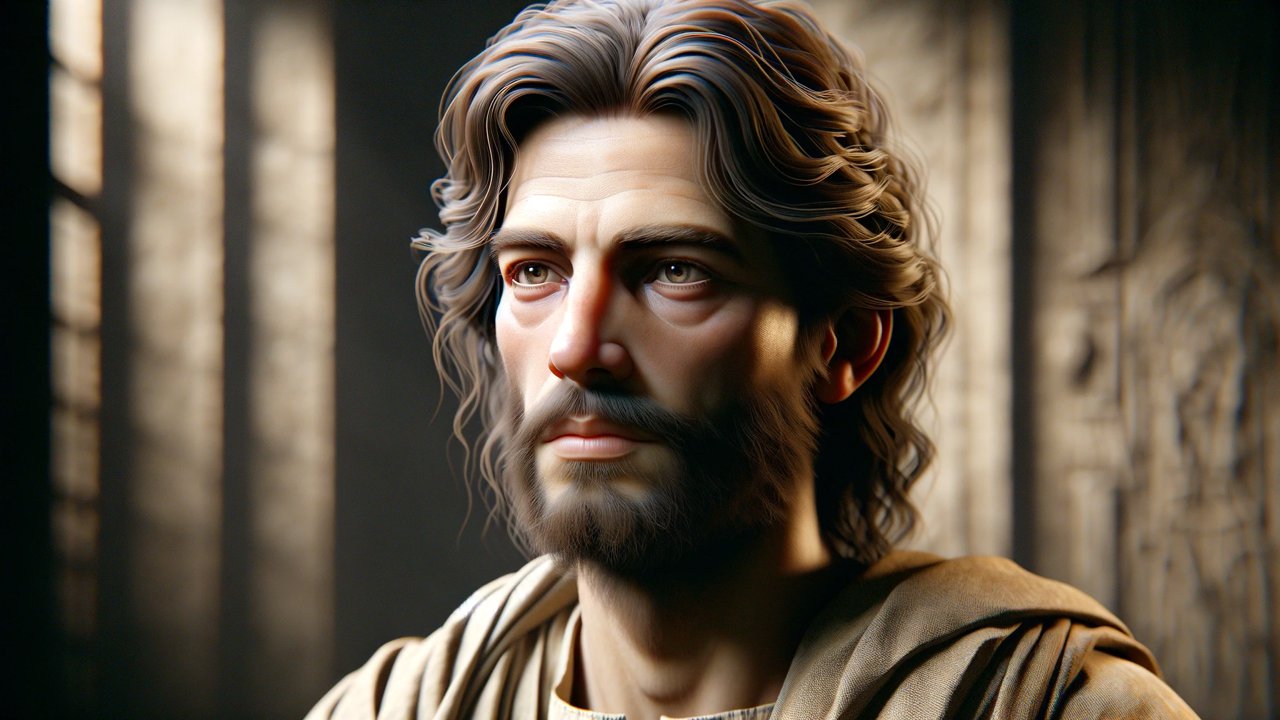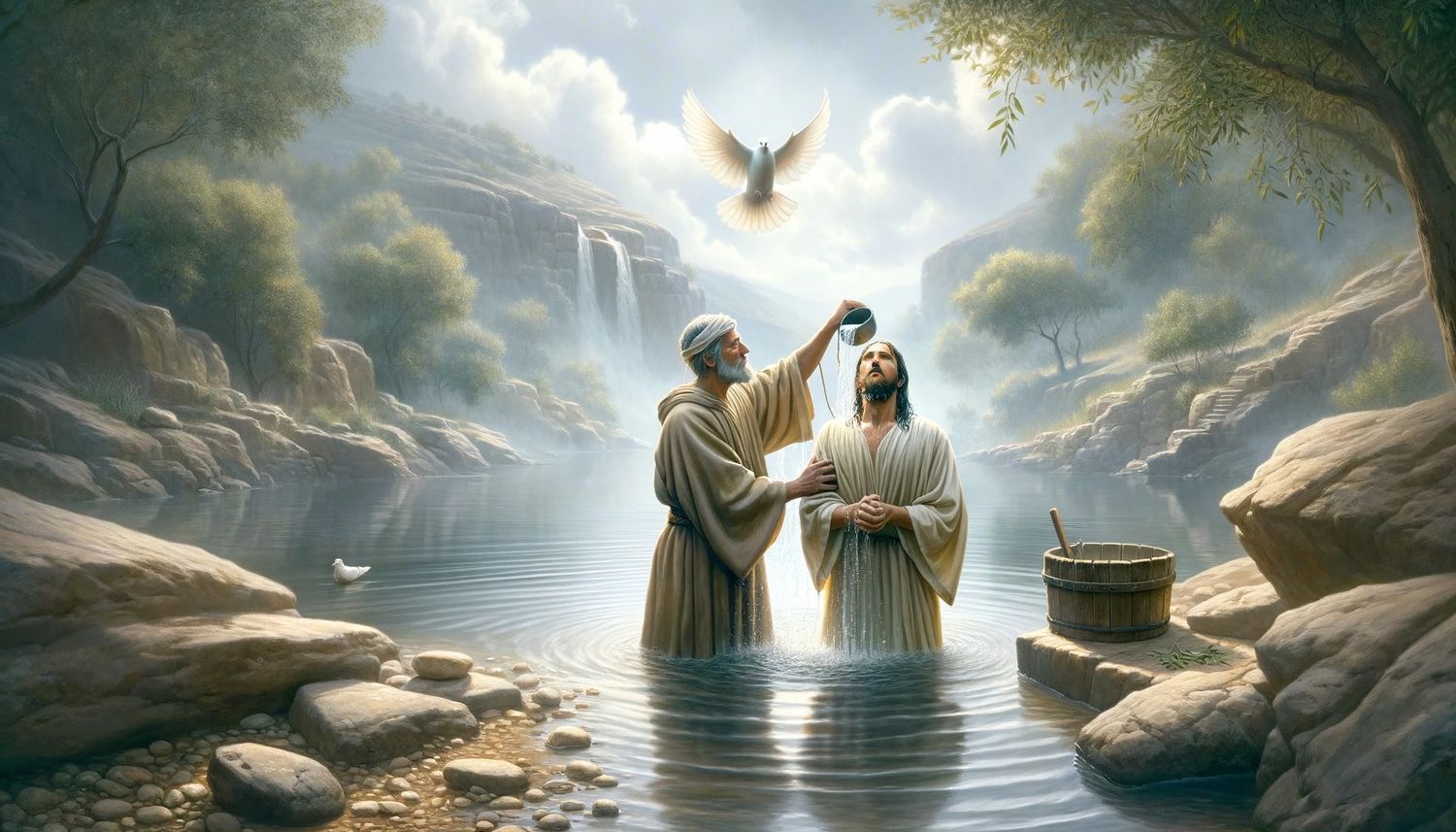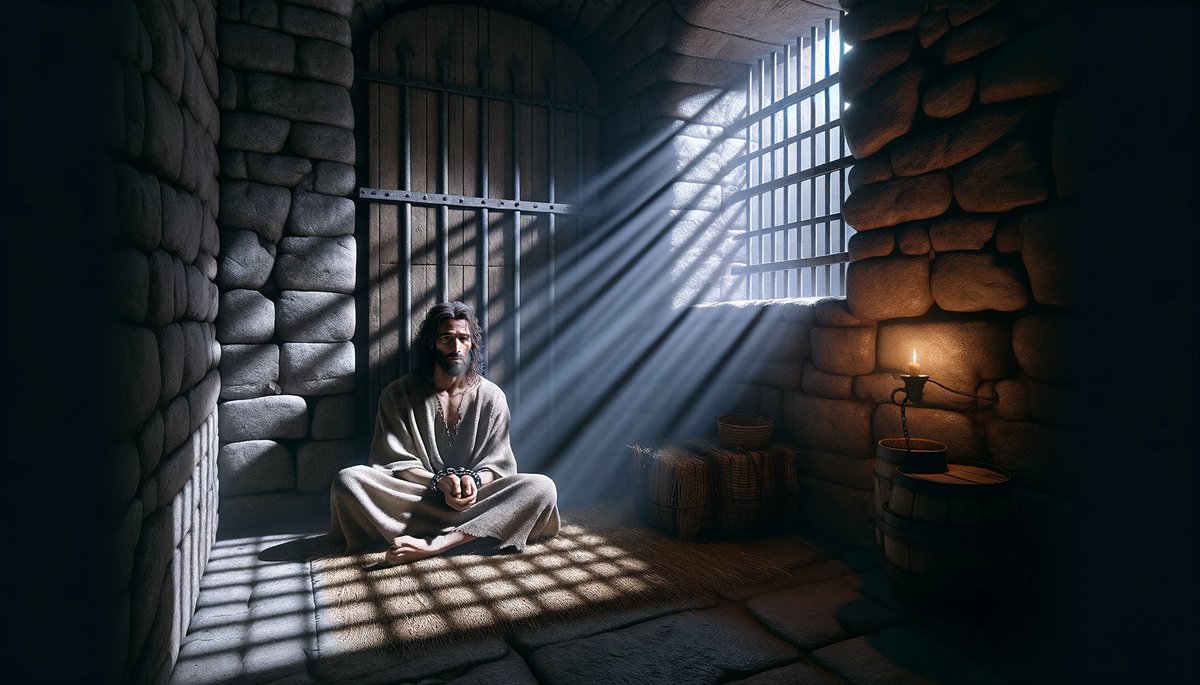Home>Theology and Spirituality>How Old Was Elizabeth When She Had John The Baptist


Theology and Spirituality
How Old Was Elizabeth When She Had John The Baptist
Published: February 19, 2024
Jason DeRose, Managing Editor at Christian.net, uses his expertise in religion and journalism to deepen understanding of faith's societal impacts. His editorial leadership, coupled with a strong academic background, enriches the platform’s diverse content, earning him recognition in both journalism and religious circles.
Discover the age of Elizabeth when she gave birth to John the Baptist and explore the theological significance of this event in theology and spirituality. Uncover the biblical insights today!
(Many of the links in this article redirect to a specific reviewed product. Your purchase of these products through affiliate links helps to generate commission for Christian.net, at no extra cost. Learn more)
Table of Contents
Introduction
The story of John the Baptist's birth is a captivating and significant aspect of biblical history. It is a tale of divine intervention, faith, and the fulfillment of prophecy. At the heart of this narrative is Elizabeth, the mother of John the Baptist, whose age at the time of her son's birth has sparked curiosity and contemplation for centuries.
Exploring the age of Elizabeth when she gave birth to John the Baptist offers a glimpse into the miraculous nature of this event and its profound implications within the Christian faith. Delving into the biblical account and historical context surrounding this remarkable occurrence provides a deeper understanding of the spiritual significance attributed to John's birth.
This exploration invites us to ponder the ways in which God's timing and purpose transcend human understanding, and how the lives of ordinary individuals can intersect with the divine in extraordinary ways. As we embark on this journey through the annals of biblical history, we are poised to unravel the timeless truths and enduring relevance encapsulated within the birth of John the Baptist and the remarkable circumstances surrounding Elizabeth's age at that pivotal moment.
The Birth of John the Baptist
The birth of John the Baptist is a profound and miraculous event that holds immense significance within Christian theology. According to the Gospel of Luke, John's birth was foretold by the angel Gabriel to his father, the priest Zechariah, who was serving in the temple. The angel's proclamation revealed that John would play a pivotal role in preparing the way for the Messiah.
The circumstances surrounding John's conception and birth were extraordinary. Zechariah and Elizabeth, John's parents, were described as righteous and devout, yet they had been unable to conceive a child due to Elizabeth's barrenness. Despite their old age, the angel Gabriel announced to Zechariah that Elizabeth would bear a son, who would be named John. This miraculous promise was met with disbelief by Zechariah, leading to his temporary loss of speech until the prophecy was fulfilled.
The birth of John the Baptist thus unfolded as a testament to God's faithfulness and power to bring forth life in the most improbable circumstances. It signified the beginning of a new era, as John would later emerge as a herald of repentance and a voice crying out in the wilderness, preparing the hearts of the people for the imminent arrival of Jesus Christ.
John's birth was a fulfillment of ancient prophecies, particularly the words of the prophet Malachi, who foretold the coming of a messenger to prepare the way for the Lord. This prophetic connection underscores the divine orchestration of John's birth and his destined role in the grand narrative of salvation history.
The birth of John the Baptist stands as a testament to the miraculous workings of God and serves as a prelude to the extraordinary events that would unfold with the arrival of Jesus Christ. It is a story that continues to inspire and captivate believers, reminding them of the profound ways in which God intervenes in human affairs to fulfill His purposes and bring about redemption.
This remarkable account of John's birth sets the stage for the unfolding drama of God's redemptive plan, inviting us to contemplate the profound implications of this extraordinary event and the enduring legacy of John the Baptist in the annals of Christian faith.
The Age of Elizabeth
The age of Elizabeth at the time of John the Baptist's birth is a subject of profound significance and intrigue within biblical scholarship and theological discourse. The Gospel of Luke provides essential insights into the age of Elizabeth, offering a glimpse into the extraordinary circumstances surrounding her conception and the subsequent fulfillment of God's promise.
Elizabeth's advanced age is a central aspect of the narrative, serving as a poignant reminder of the miraculous nature of John the Baptist's birth. The biblical account portrays Elizabeth and her husband, Zechariah, as elderly individuals who had long grappled with the anguish of barrenness. This detail underscores the seemingly insurmountable biological barriers that stood in the way of conceiving a child, amplifying the miraculous nature of John's conception and birth.
The advanced age of Elizabeth not only accentuates the miraculous nature of John's birth but also underscores the divine intervention that transcends the limitations of human biology. It serves as a testament to God's sovereignty over the natural order and His ability to bring forth life in the most improbable circumstances. The age of Elizabeth thus becomes a pivotal element in highlighting the extraordinary nature of John the Baptist's arrival and the divine purpose woven into his existence.
Furthermore, Elizabeth's age at the time of John's birth aligns with the biblical motif of God's faithfulness and His propensity to work through individuals who have been deemed beyond the age of childbearing. This thematic thread resonates with the narratives of other matriarchs in the Old Testament, such as Sarah, the wife of Abraham, and Hannah, the mother of Samuel, both of whom experienced the miraculous blessing of childbirth in their advanced years.
The age of Elizabeth at the time of John the Baptist's birth serves as a poignant reminder of God's ability to transcend the constraints of age and biology, ushering in new life and fulfilling His divine purposes in ways that defy human expectations. It stands as a testament to the overarching theme of God's faithfulness and the fulfillment of His promises, even in the face of seemingly insurmountable obstacles.
In essence, Elizabeth's age at the time of John's birth serves as a profound testament to the miraculous workings of God and the extraordinary nature of His redemptive plan. It invites contemplation on the timeless truth that God's timing and intervention transcend human limitations, bringing forth hope and fulfillment in the most unexpected and awe-inspiring ways.
The Biblical Account
The biblical account of the birth of John the Baptist, as documented in the Gospel of Luke, unfolds as a testament to the extraordinary workings of God in the lives of ordinary individuals. The narrative commences with the introduction of Zechariah and Elizabeth, a righteous and devout couple who had long grappled with the sorrow of barrenness. Despite their advanced age, they remained steadfast in their faith and commitment to God.
The pivotal moment in this narrative occurs when Zechariah, while serving as a priest in the temple, encounters the angel Gabriel, who delivers the astounding news of Elizabeth's impending conception. The angelic proclamation unveils the divine plan for the couple, announcing the birth of a son who would be named John. This revelation is accompanied by a temporary loss of speech for Zechariah, a consequence of his initial disbelief in the angel's message.
The subsequent unfolding of events sees the miraculous fulfillment of Gabriel's prophecy, as Elizabeth conceives and joyously embraces the gift of impending motherhood. The birth of John the Baptist emerges as a testament to God's faithfulness and His ability to bring forth life in the most improbable circumstances. It signifies the dawning of a new era, as John would later emerge as a prophetic voice, preparing the hearts of the people for the imminent arrival of Jesus Christ.
The biblical account of John the Baptist's birth is intricately woven with themes of divine intervention, faith, and the fulfillment of ancient prophecies. It serves as a poignant reminder of God's sovereignty over the natural order and His propensity to work through individuals who have been deemed beyond the age of childbearing. The miraculous nature of John's conception and birth underscores the overarching theme of God's faithfulness and the fulfillment of His promises, even in the face of seemingly insurmountable obstacles.
In essence, the biblical account of John the Baptist's birth stands as a testament to the miraculous workings of God and the extraordinary nature of His redemptive plan. It invites contemplation on the timeless truth that God's timing and intervention transcend human limitations, bringing forth hope and fulfillment in the most unexpected and awe-inspiring ways.
Conclusion
The age of Elizabeth at the time of John the Baptist's birth serves as a poignant reminder of the miraculous workings of God and the extraordinary nature of His redemptive plan. It invites contemplation on the timeless truth that God's timing and intervention transcend human limitations, bringing forth hope and fulfillment in the most unexpected and awe-inspiring ways.
The birth of John the Baptist stands as a testament to the miraculous workings of God and serves as a prelude to the extraordinary events that would unfold with the arrival of Jesus Christ. It is a story that continues to inspire and captivate believers, reminding them of the profound ways in which God intervenes in human affairs to fulfill His purposes and bring about redemption.
The biblical account of John the Baptist's birth is intricately woven with themes of divine intervention, faith, and the fulfillment of ancient prophecies. It serves as a poignant reminder of God's sovereignty over the natural order and His propensity to work through individuals who have been deemed beyond the age of childbearing. The miraculous nature of John's conception and birth underscores the overarching theme of God's faithfulness and the fulfillment of His promises, even in the face of seemingly insurmountable obstacles.
In essence, the age of Elizabeth at the time of John the Baptist's birth stands as a profound testament to the miraculous workings of God and the extraordinary nature of His redemptive plan. It invites contemplation on the timeless truth that God's timing and intervention transcend human limitations, bringing forth hope and fulfillment in the most unexpected and awe-inspiring ways.
The story of John the Baptist's birth, intertwined with the age of Elizabeth, continues to resonate across generations, serving as a testament to the enduring power of faith and the remarkable ways in which God orchestrates His divine purposes. It stands as a timeless beacon of hope, inspiring believers to embrace the miraculous and to trust in the unfolding of God's plan, even in the face of seemingly insurmountable odds.
As we reflect on the age of Elizabeth and the miraculous birth of John the Baptist, we are reminded of the profound truth that God's ways are beyond human comprehension, and His ability to bring forth life and redemption knows no bounds. It is a story that encapsulates the enduring message of hope, faith, and the miraculous intervention of the divine in the tapestry of human history.















